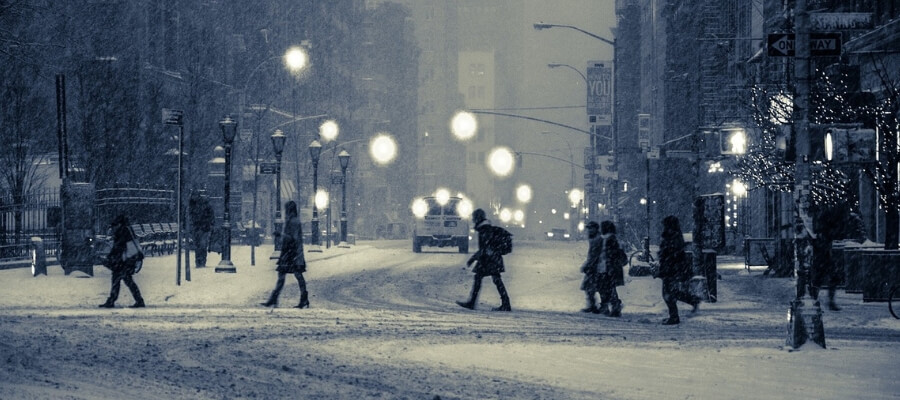Winter Hazards, Risk and Danger
Winter weather brings its own set of hazards as the snow and ice can jeopardize your safety. In Massachusetts, slip and fall injuries occur too often in these conditions. Property owner liability in winter weather can trigger potential legal battles due to frozen sidewalks and slippery parking lots. Although, property owners and local individuals have a responsibility to exercise reasonable care in these snow-covered neighborhoods, accidents do happen.
When there is an accident, how do you determine property owner liability?
Property Owner Liability in Winter Weather
Determining who’s liable for accidents occurring in the winter months on commercial or private properties isn’t a simple, straightforward task. Massachusetts law takes into consideration the property owner’s duty to prevent any harm as well as the injured party’s responsibility to use precaution.
When an injury is caused as a result of the owner’s failure to upkeep the property, it needs to be proven.
- Did the property owner do their best to keep the environment safe during the winter season?
- Was the condition known, or should have been known, and unavoidable were reasonable care taken by the property owner?
Certain degrees of neglect or carelessness play significant roles in determining whether property owner liability is justified.
For example, the plaintiff must identify the property hazard and verify that the hazard existed for an unacceptable period of time to establish the owner’s failure to maintain the property in a reasonably safe condition and negligently failing to fix the hazardous condition.
Based on the region’s winter challenges, property owners are required to maintain adequate clearing routines to ensure individuals are protected from any harm. Unfortunately, winter storms can deliver a constant accumulation of snow and ice making it difficult to keep some areas completely cleared.
The Investigation
Surveys report an increase in minor and severe injuries, long term recovery and fatalities as a result of hazardous weather conditions.
During the investigation, your attorney will collect the proper documentation to make sure nothing gets missed. Of vital importance are photographs of the location of the fall, showing the condition at the time of the fall. These should be taken immediately or notify your attorney as soon as possible so that he or she can arrange to have photographs taken.
Equally important is knowing what the weather was doing before, during and after the incident. Here’s why.
- Did the injured party fail to use sound judgment and exercise reasonable care for their safety?
- Was it possible for the property owner to prevent or somehow minimize the potential weather risks associated with the injury?
Natural occurrences during the winter season involve freezing, melting, and refreezing causing danger to individuals, but not necessarily demonstrating the failure of a property owner’s duty in preventing an icy walkway.
Who Can Help?
What’s reasonable in one case isn’t always reasonable in another. Considering all of the factors surrounding property owner liability in Massachusetts, you should talk to an attorney. Keep in mind, all legal incidents have statute of limitations, so it is always wise to seek the advice of an attorney as soon after your accident as possible.
Sources:
National Weather Service – Hazard weather casualties up over 30 years
Massachusetts Law – Snow and ice regulations and law
Boston Fines – Removal of snow and ice from a private property, streets, and sidewalks


